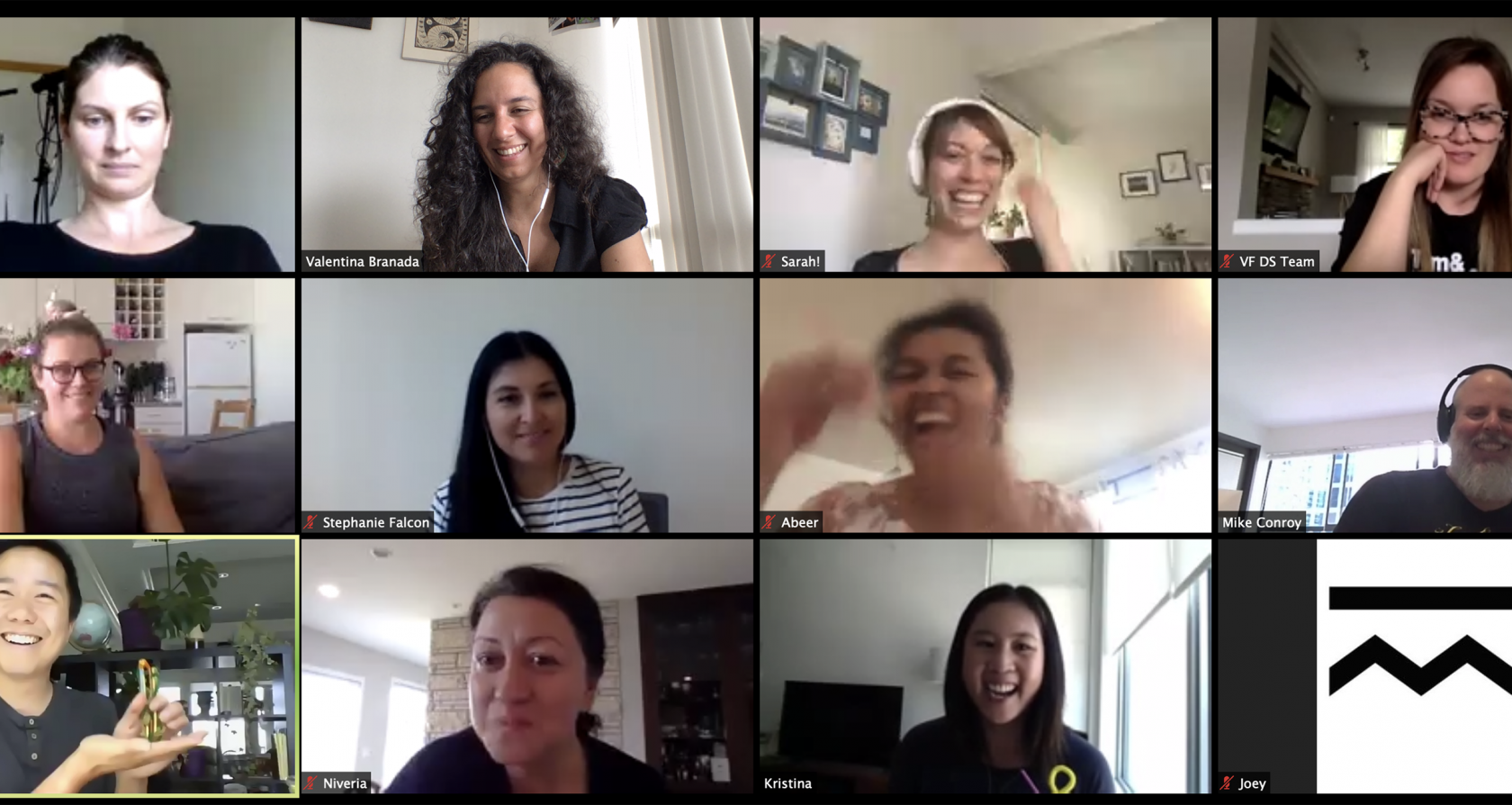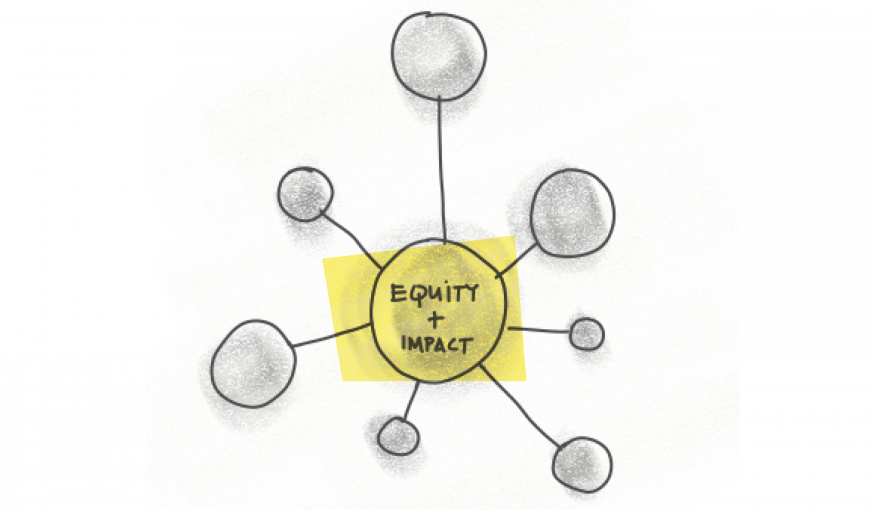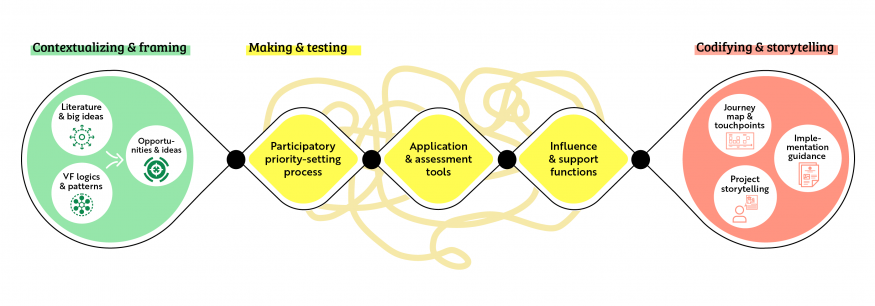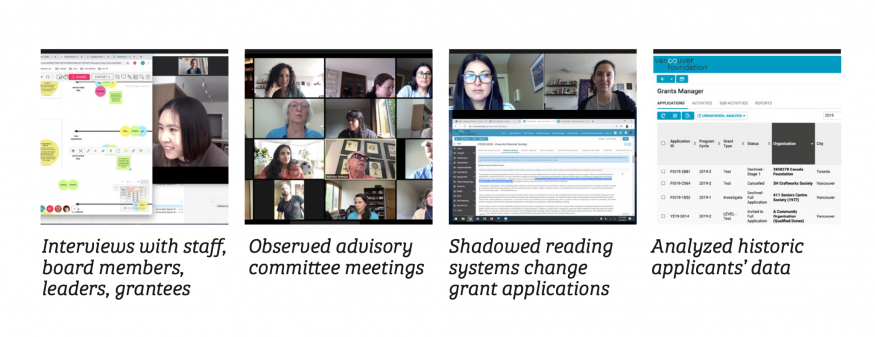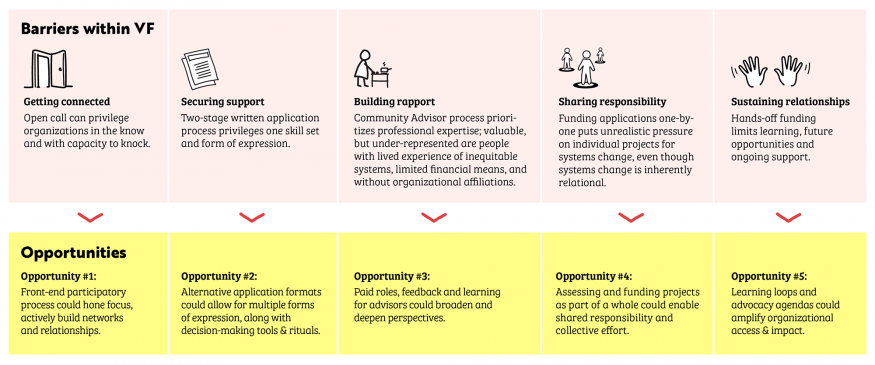
Focus
How does philanthropy contribute to, sustain, and meaningfully address inequality? What has been and what could be its core purpose? These are questions animating our partnership with Vancouver Foundation in 2021. A year ago, at the start of our work together, we were asking a different question: How do we strengthen equity within systems change grantmaking?
See what we did there? We switched means and ends. Two rounds of research and so many insights later, we see systems change granting as a means to a bigger end, not an end in and of itself. We are grappling with: who is philanthropy for, and what is it a vehicle for?
The purpose of philanthropy is not so self-evident. There’s so many historical and cultural traditions around philanthropy and giving, from Indigenous, African, Confucian, Buddhist, Jewish, Islamic, Christian, British, French, early American conceptions, and the list goes on. Is philanthropy designed to placate the poor, and keep the wealthy rich? Is philanthropy designed to strengthen civic society? Is philanthropy designed to enable horizontal relationships and mutuality?
Over 2021, we’re seeking out lots of different thinkers and practitioners to help us consider different philosophical and cultural underpinnings for philanthropy, and its relationship to inequality and justice, so we can apply that to a community-based philanthropic context.
We hope the discussion will enable Vancouver Foundation and its many community stakeholders, especially from equity-denied communities, to explore its reason for being, and what that means for its structure, function, practice, and relationships. We’re focusing, first and foremost, on purpose because purpose is at the centre of all systems change, whether we know our purpose or not.
Starting Points
Five years ago, Vancouver Foundation shifted its attention from social good to systems change, distributing over $50 million to more than 500 projects trying to tackle the root causes of knotty social challenges.
It’s both a substantive investment for one community foundation, and a small sum for reckoning with systems as diverse as health to justice to education to the environment. An independent evaluation concluded that Vancouver Foundation’s system change grants have increased the demand for and supply of systems change work — and also, highlighted an opportunity to more deeply engage smaller, rural, and less established organizations in historically marginalized communities.
That’s where InWithForward entered the picture. In early spring of 2020, we got going with the question: How might we strengthen equity and deepen the impact of Vancouver Foundation’s Systems Change grants?
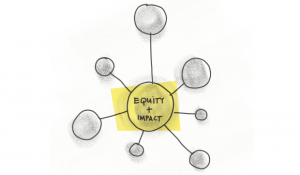
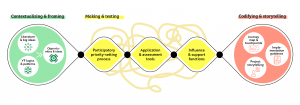
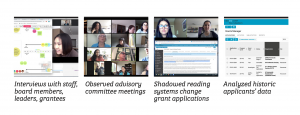
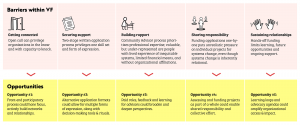
Six Opportunities
Over March, April and May, we explored how Vancouver Foundation’s system change granting works. Thanks to the openness of foundation staff and leadership, we hosted conversations about values and practices, and observed how applications were scored and decisions were made. Thanks to the willingness of grantees, we spoke with ten organizations to hear their experiences of the pandemic and sense check how they might like to participate in re-imagining granting and setting funding priorities.
From these observations and conversations, alongside desk research on the barriers to equitable grantmaking, we named six opportunity areas: six broad areas for deeper inquiry and active learning.
Codesign
Some of the opportunity areas identified in our first report were big, like re-imagining community participation in decision-making, and some were small, like revising the written application itself.
With the fall Systems Change Grant cycle three months away, we chose to start with a modest piece of the puzzle, but a timely opportunity area: the grant application. The idea was that the application might be a window into dominant logics and biases. By inquiring into what information staff, advisors and community members deem important for determining systemic impact, we might highlight disconnects and redesign the application from the perspectives of equity-denied and equity-seeking communities.
That was the premise under which, in the summer of 2020, we hosted eleven virtual codesign sessions with community organizations, focusing especially on organizations on the sidelines of Vancouver Foundation: those who have never applied, and those who have unsuccessfully applied, particularly newer, smaller, rural, BIPOC and lived experience-led organizations. Sixty-four folks participated in those eleven codesign sessions.
Read what we heard and learned in the report, Tweaks and Twists. An early learning was organizations’ need to see Vancouver Foundation modelling reflection, vulnerability, and mistake-making in the pursuit of equity and justice. Vancouver Foundation agreed. This report is shared in that spirit.
Twists and Turns: Bending the Arc of a System’s Change Grant Towards Justice Report
pdf ⋅ 17 MB
DownloadRead about:
- the process and content of the codesign sessions
- who engaged, their beliefs and aspirations, their perceived barriers and enablers
- features of a desired grantmaking process as one attempt to make sense of what we heard from participants into
- changes that have already been made as a result of the codesign sessions, and 8 dominant logics identified to debunk and flip
- and how we are re-scoping the work going forward to take on the weighty questions
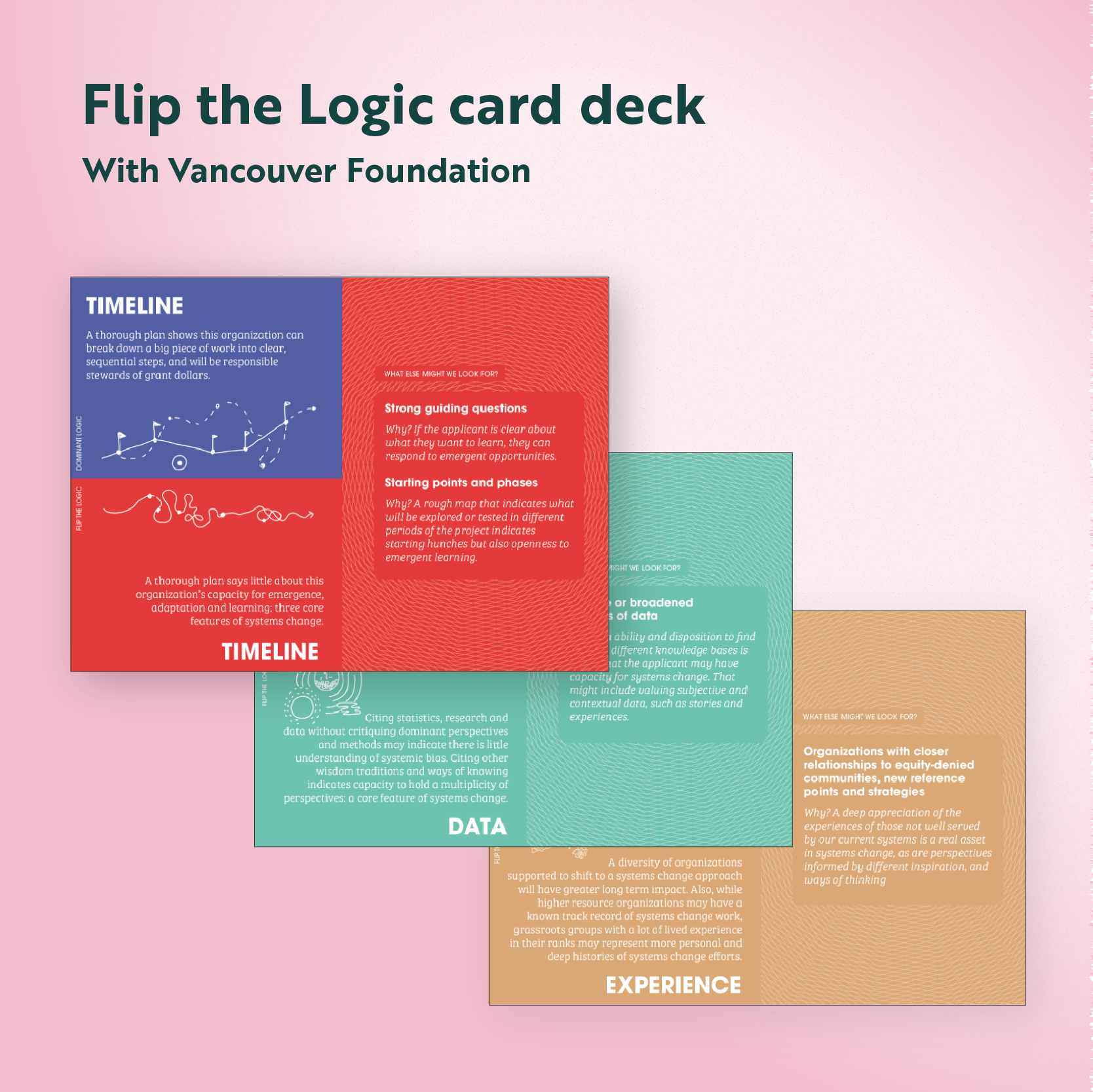
For more about project BetaPhil
Get project updates, reports and tools
